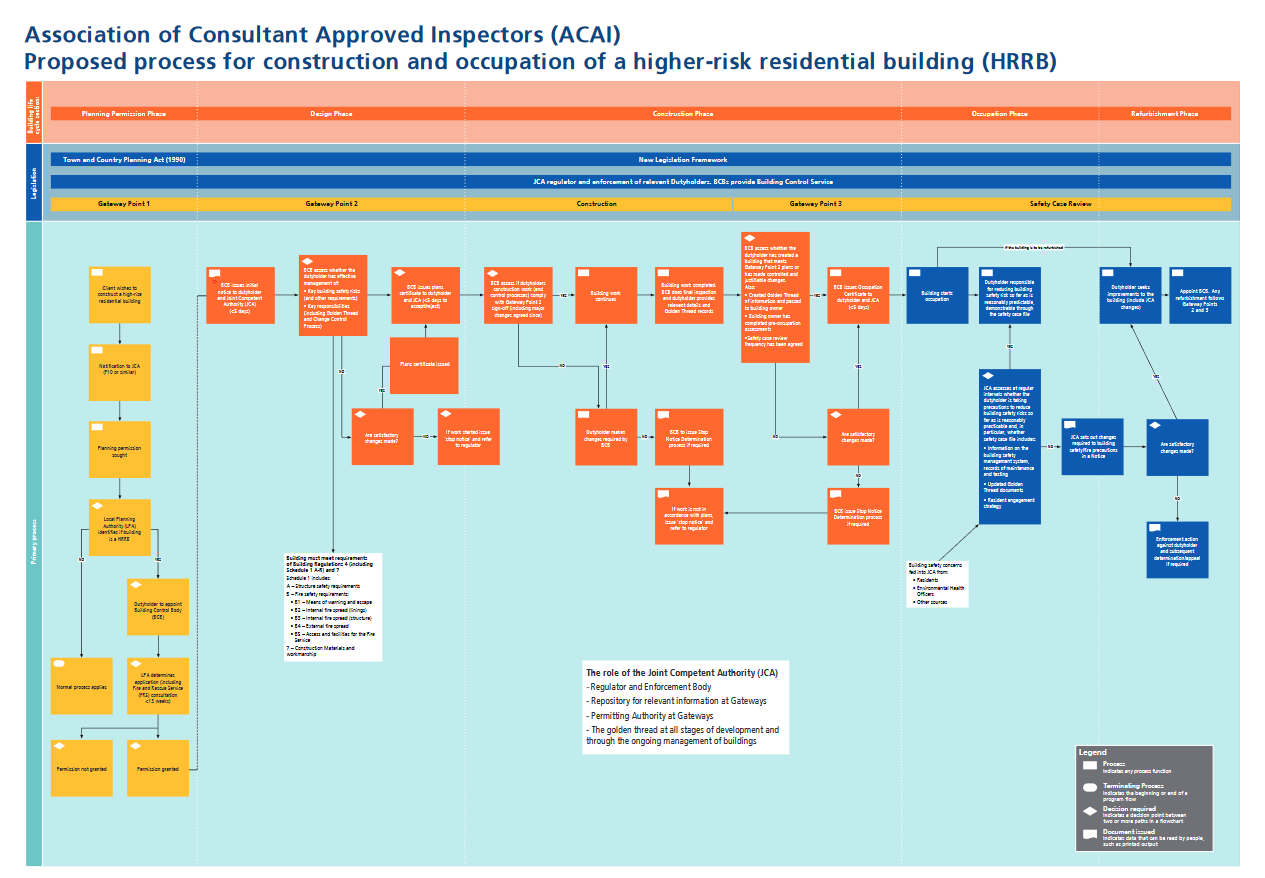
ACAI calls for tighter controls on high rise inspections after Grenfell
"an industry-wide regulator would be able to reduce fears about corner-cutting and give assurances to the public that the sector is delivering safe buildings"
On 19 March 2019 at a Westminster Social Policy Forum event on building regulation reform ACAI Chairman Paul Wilkins called for more oversight of high rise inspections following the fire at Grenfell Tower.
Mr Wilkins calls for a system of ‘controlled competition’ which would hold ALL building control bodies accountable to stringent inspection rules while ensuring the benefits that competition has delivered are secured ...
The Building Act 1984 [the Act] is the prime enabling legislation under which secondary legislation such as the building regulations are made. The Act allows individuals and organisations that are considered sufficiently competent, to join a competent persons scheme, and then to self-certify that their work has been carried out in compliance with the building regulations and to issue a certificate to the client. The ability to self-certify is limited to those areas of the works in which certifiers are considered sufficiently competent ... the building regulations require that a project's compliance is independently verified - historically, this verification could only be given by local authorities, however, is now also provided by privately appointed approved inspectors ...
since 31 March 2014, the Department for Communities and Local Government (DCLG) and Welsh Government Ministers transferred responsibility for approving Approved Inspectors to CICAIR Limited, a subsidiary of the Construction Industry Council ~
Private inspectors are currently held to account by CICAIR, an arms-length government regulator, which oversees private building control. However, local authorities are not currently regulated by this register. Instead, ‘controlled competition’ would introduce a separate register of local authority AND private inspectors included on the same register equipped to deal with high-risk residential buildings. This could be extended to other building types as necessary.
LINK TO A PRINTABLE ACAI ROADMAP [A3 pdf]
It could also tackle perceived conflicts of interest identified by the Hackitt Review across the industry by applying mandatory, minimum standards on building inspections.
ICM's Director of Education and Training David Jones entirely supports a system of building control and Building Regulatory compliance enforcement based upon competent ability of the Inspectors and their employing organisations, - certainly not based upon what particular membership group they belong to dependent upon whether they are local government officers or employed by a private organisation!
Ed.
